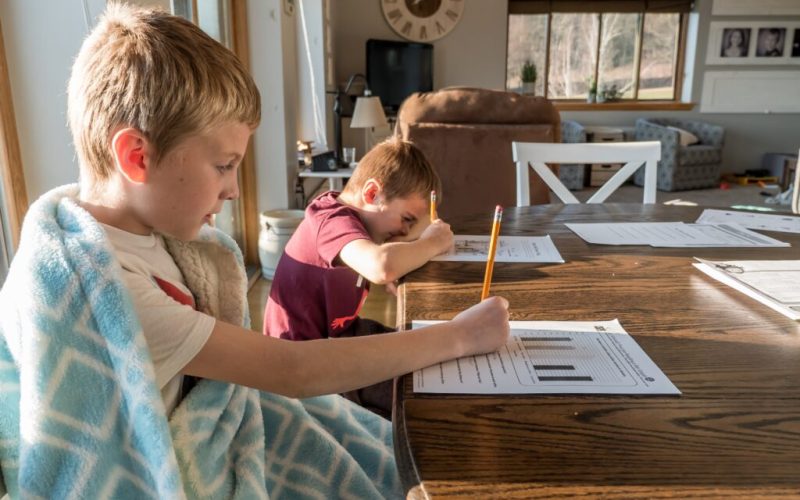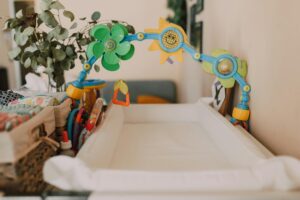The ability to freely worship is one of the fundamental aspects of the American national identity. However, a fine line exists between enthusiastic practice and severe overcommitment to a religion that may eventually become dangerous behavior. Adults can choose how, when, and which faction of faith to practice, but the children in their households will follow without understanding what their practice entails. TV shows and documentary specials highlighting the novelty of large, zealously religious families have been a mainstay of media for decades. TLC comes to mind for its promotion of the positive and “relatable” aspects of these families’ lifestyles, while ID shows and investigative programming depict what happens when cult-like activities within the families become exposed.
The latest installment in the Duggar saga is a four-part series entitled “Shiny Happy People,” from Prime Video, which has reignited conversations around the gendered treatment of sons versus daughters, the caretaking responsibilities that are placed on young children and justified by religious virtue, and the immense pressure to keep up the appearance of an “ideal” family. Despite the various scandals that have plagued the Duggar family and the Institute of Basic Life Principles (their affiliated church) for years, the main message that the family’s grown children have responded with has been their loyalty to parents, spouses, and faith. Even with the eldest son Josh’s conviction for possession of child pornography and past troubles relating to molestation and infidelity, the central theme of the Duggar family’s messaging has been forgiveness from God being superior to all else. Notably, there has been no mention of divorce, separation, or establishing protections for the children within the elder Duggar’s household.
Recognizing the connection between religion, homeschooling, and educational neglect.
In the case of the Duggars and other fundamentalist households, homeschooling is one way that religious teachings and a fundamentalist lifestyle are passed between generations. Homeschooling as a mechanism for insulating children and preventing them from outside influences or threats (whether viral or not) is not a novel concept. As documentary participant and former IBLP member Eve Ettinger recently discussed, being able to regulate the content and manner of a child’s education is key to promoting the religious ideology that fundamentalists live by [1]. The ability for a homeschooled child to earn a GED in their state is often considered the baseline for minimum standards taught within the home. In contrast, failing to provide educational programming/tools that measure up to this baseline standard can constitute educational neglect. At a minimum, children will be insulated from outside perspectives on topics that conflict with their family’s religious practices, while in the most extreme cases, they may be cut off from protective institutions and external influence entirely. Different standards are also implemented according to state governments, meaning that a homeschooled child in Arkansas will have to measure up to a different standard or receive different exceptions than a child in California. When religious standards become part of the homeschool curriculum, however, children are receiving more emphasis on gendered and religiously motivated practices.
The onset of the pandemic in 2020 has allowed for a resurgence in homeschool popularity, even among families who had sent their children to traditional institutions. Families with financial resources hired private teachers and held classes within their homes as schools remained closed, allowing the homeschool experience to create a sense of “normalcy” during this period. However, during the same time, reporting statistics demonstrated a sharp decrease in child abuse and neglect cases occurring in this period. The reason these numbers dropped so low was not due to abuse not occurring as often but due to children’s removal from the presence of mandatory reporters and other supportive individuals during the same time. One of the less visible forms of abuse or neglect is the burden of caretaking responsibilities or other labor within the household setting. For young women and girls, especially those raised within strongly religious households, this manifests in a phenomenon known as “destructive parenting,” wherein children young enough to still need parental care are tasked with similar responsibilities in caring for their younger siblings [2].
With schools reopened, parents who adopted this practice over the past few years may continue homeschooling their children in good faith. They may appreciate the flexibility homeschooling provides or the access to alternative education opportunities for their children [3]. However, with the greater establishment of homeschool curricula across society, these parents may also misuse the model to prioritize religious study and principles over standard educational principles. Having children enter adult life having only become educated in faith-based curricula may eventually leave them unable to measure up to established educational institutions. Ettinger’s suggestions for advocating for safe and healthy homeschooling practices include becoming familiar with state policies, their exemptions, and demonstrating support of the Homeschooled Children’s Bill of Rights.
If an adult voluntarily increases their religious involvement, especially during times of personal difficulty, it is not necessarily a point of concern. These institutions can be a source of support and a community to turn to when families are in crisis. However, such religious activity should supplement the family structure rather than drive a wedge between its members, and its practice should never be an excuse for isolating others from another source of support.
Supplemental Reading on AZ Homeschool Policies:
Arizona – Coalition for Responsible Home Education (responsiblehomeschooling.org)
Mallory Scott is a 2L at the Sandra Day O’Connor College of Law at Arizona State University, and law clerk at Woodnick Law PLLC. While working as a clerk during the summer, she has had the opportunity to work on real-world litigation, but also research topics of interest relating to the future practice of law. The practice values exploration into collateral topics that relate to family law, especially their relevance to popular culture and media.



